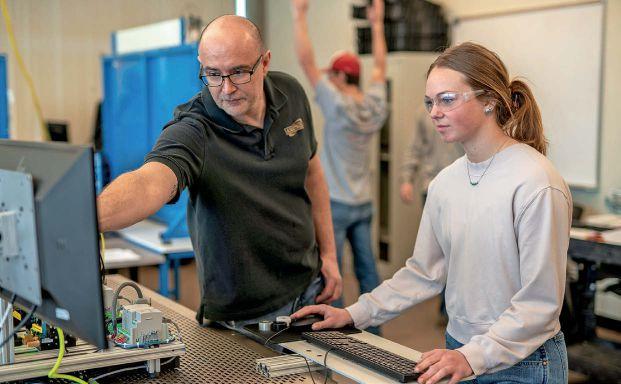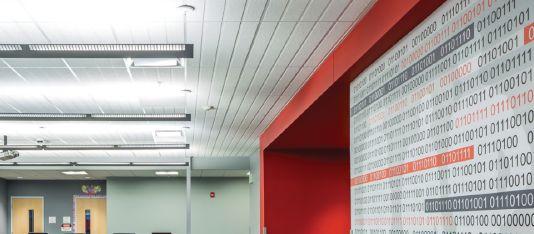
2 minute read
Manufacturing North Dakota’s workforce with polytechnic education



By Bismarck State College
An ongoing employee shortage has left many employers in the manufacturing and automation industry without the qualified, trained workforce they need—a workforce with the skills to operate, maintain and repair the machines that keep industry going. This shortfall will continue to create gaps in productivity and profit. However, a new polytechnic education model in the state’s capital city may be the solution to the challenges the industry is facing.
On Nov. 15, 2021, North Dakota Gov. Doug Burgum signed Senate Bill 2345 granting Bismarck State College $38 million from the state’s federal Rescue Plan coronavirus aid to advance BSC’s mission as a polytechnic college and to develop a more qualified workforce for the state.
“We are extremely appreciative of the level of confidence and commitment we’ve received from the governor and our legislative leaders to advance the ND State Board of Higher Education’s polytechnic mission at BSC,” said BSC President Doug Jensen. “North Dakota has tremendous natural assets that support economic growth in our state. The decision to invest in our polytechnic mission aligns perfectly with the state’s economic growth projects.” continued on page 22 continued from Page 21
BSC works closely with industry leaders to bridge the gaps in industry needs and ensure students are prepared the first day on the job, with the skills they need. BSC Polytechnic Program Outreach Director Alicia Uhde says learning experiences at a polytechnic institution are purposeful, practical and driven by workforce needs. “As companies continue to advance,” she said, “it is important to ensure that the workforce is prepared and ready to install, maintain, repair, operate and troubleshoot these new technologies.”
A polytechnic education gives students more hands-on, applied learning opportunities through real-world experiences with labs, internships and cooperative community projects.

Applied learning at a polytechnic institution is intense and highly technical, but it’s also incredibly rewarding. Students prepare to solve complex social, economic and community problems and achieve success in the real world.
Many industries are becoming more integrated with computers and sensors, which require technicians to maintain their efficiency. While machines may replace some tasks previously performed by people, such as sorting mail packages or determining quality of a product, the use of automation actually creates more jobs for people to repair and troubleshoot these machines when needed.
Students studying manufacturing and automation use project-based learning to complete a solid foundation of electronic, electrical, mechanical, control systems and robotic systems. They learn to integrate all these concepts and systems to increase the productivity and efficiencies of industrial facilities.
Skilled technicians are in high demand in an increasingly automated world, Uhde noted.

“The manufacturing industry is evolving quickly with new technologies being launched continuously,” she said. “The hands-on, project-based learning that students engage in prepares them to support companies, so they stay competitive in the global market.”




EPIC Companies shows off A New Office









